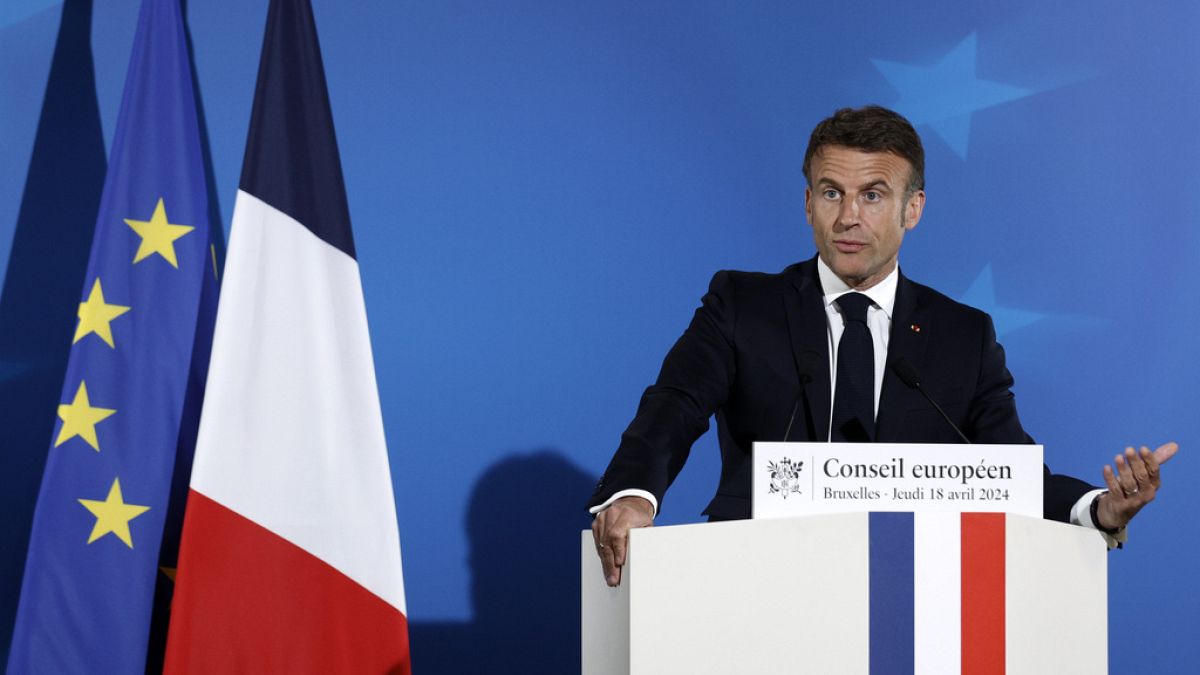The French far right is to win the European elections in France. Will the historical result affect the current EU political balance?
France’s far-right is expected to make gains in June’s European elections. It stands the chance of reshaping EU politics as it could influence the making of any new coalition in the European Parliament and weaken pro-EU forces.
According to a late April exclusive Euronews Superpoll, the far-right Rassemblement National is in first place and has consolidated its score slightly above 30% of the voting intentions in four weeks, while the party of President Emmanuel Macron, Renaissance, is second, with a meagre 17.5%.
Led by Jordan Bardella, Marine Le Pen’s heir apparent, Rassemblement National (RN) spearheads the French far right. The party made more progress in April compared to March, as opposed to its rival — Renaissance — in second place, which seems to be losing even more ground.
Many French voters could be tempted to use the EU election to express their disappointment with Macron’s social and economic policies.
The crisis of identity of traditional mainstream parties that made the French political history of contemporary France and Europe seems far from being resolved despite the encouraging as well as modest third place of the Socialist Party.
Support for Rapahël Gluksmann’s party hasn’t grown between March and April, yet it is still kicking after years of deep political trouble.
The social concerns of the French people, especially when it comes to the pensions reform, have given the Socialist Party a new youth, eroded the presidential votes’ capital, and enhanced Bardella’s RN.
The European People’s Party affiliate, Les Republicains or The Republicans, places fourth among the French voters. A big portion of the electoral base is still seduced by Macron’s free market-oriented policies, another part of Les Republicains is attracted by the radical and anti-migration conservatism of the far-right even for social reasons.
”In terms of voter profile, RN’s most impressive gains have come with younger, educated voters, who have long avoided Le Pen’s party. With voters between 18 and 49 years old, RN dominates other parties,” underlines the Euronews Poll Center.
The radical leftist faction, La France Insoumise (LFI) slightly improved its electoral expectations, while the French Greens have lost some ground compared to March.
The French far and radical right is made up of two parties, the larger being the RN, a member of the Identity and Democracy group.
Its smaller competitor is Reconquête (“Reconquer”), which is a member of the European Conservatives and Reformists group (ECR) and led by Eric Zemmour, a passionate nationalist conservative author and columnist.
Zemmour is a highly controversial figure with an anti-migration agenda, regarded by many French as a representative of the current far-right thinking.
The French right-wing surge could influence the composition of the future parliament, especially in terms of seats and political leanings.
Viewed from the French perspective, life could be difficult for the current grand coalition of social-democrats, centre-right EPP, and pro-market liberals.
Macron’s Renaissance has a leading role in the grand coalition because of the number of seats it holds — but an electoral setback could kill the grand coalition’s political alliance.
While Glucksman’s socialists are slowly eroding, the Socialist Party is facing a showdown of its own — from the radical leftists of Jean-Luc Mélenchon.

Emily Foster is a globe-trotting journalist based in the UK. Her articles offer readers a global perspective on international events, exploring complex geopolitical issues and providing a nuanced view of the world’s most pressing challenges.








